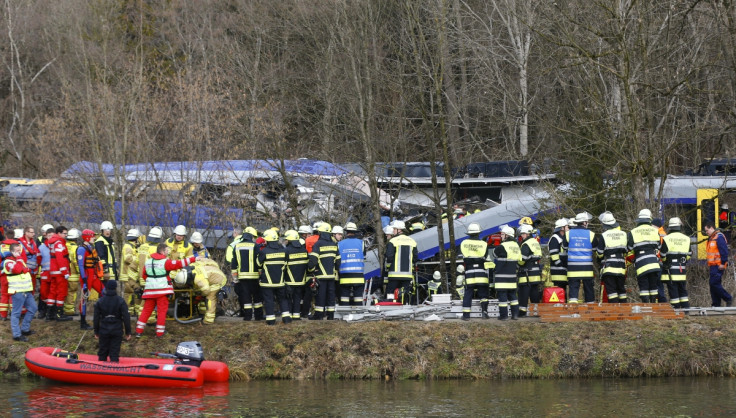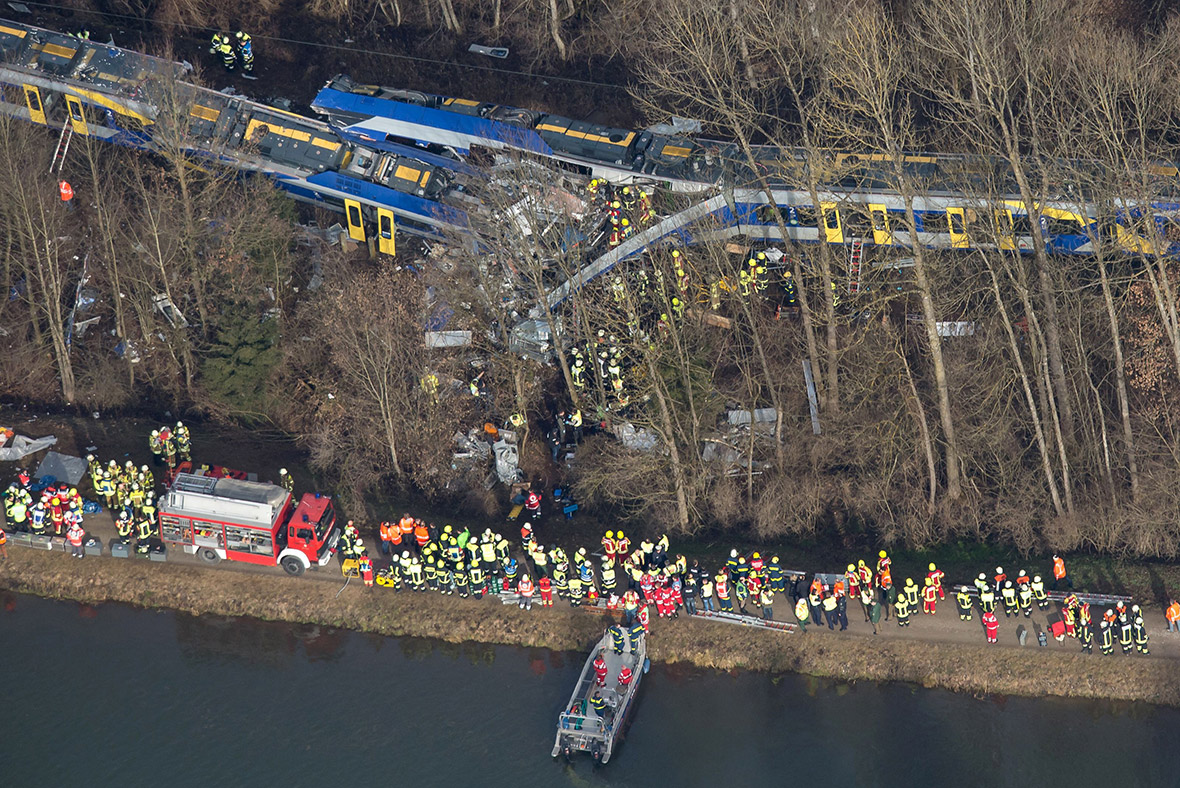Germany train crash: Conductors 'did not have time to brake in deadly high-speed collision' at Bad Aibling

Health services in southern Germany have appealed for blood donations urgently needed to assist more than 150 people injured in a train crash, as authorities said the two trains involved were travelling at high-speed and probably failed to activate brakes before the collision occurred.
Police said nine people were killed in the accident, which took place on a single track rail segment near the Bavarian town of Bad Aibling, about 60km south west of Munich, at around 7am on 9 February.
The impact caused the front carriages to wedge into each other and the passenger trains to partially derail. It took hours for rescue teams to pull everyone out of the wreckage. Police confirmed more than 100 were injured, including 50 seriously.
The Munich Blood Donation Service posted an urgent call for blood donations on its website, as it was struggling to supply local hospitals with blood products needed to face the inflow of wounded.
"Due to the tragic train accident in the district of Rosenheim there is an acute increased need for life-saving blood products," the appeal read.
Potential donors were invited to book an appointment online or walk in to a blood donation centre in the city. "On behalf of the sick and injured fellow human beings who are in urgent need of your donation, we say a big thank you!"
Reasons for the crash that occurred on a single line running between the Mangfall river and a wooden area were not yet clear. "We're still in the middle of the rescue operations, it's too early to talk about possible reasons for the crash now," said Federal police spokesman Stefan Brandl.
However the Bavarian interior minister, Joachim Herrmann, said the regional trains had significantly deviated from their time schedule for reasons that were yet not clear.
Germany's transport minister, Alexander Dobrindt, said considering the damage caused, the trains "must have run very, very fast when the collision occurred".
Dobrindt confirmed the accident happened on a curvy stretch of rail where the speed limit was of 100kmph and a recently installed automatic safety system was in place.
Because of their curved trajectory and the number of trees in the area the minister said it can be inferred conductors had no clear visibility and crashed into each other without previously pulling the breaks.
A large number of emergency teams were deployed at the scene in the aftermath of what police spokesman Stefan Sonntag described as "the biggest accident we have had in years" in the region.
The operator of both trains, Bayerische Oberlandbahn, said the company was shaken by the accident and set up phone hotlines for families of the victims. "We are deeply shocked and stunned that something like this could happen," says Christian Schreyer, chief executive officer of Veolia Verkehr. "Our thoughts are now with the victims and their relatives."
Two of the trains' three black boxes have been retrieved and are to be examined.




© Copyright IBTimes 2025. All rights reserved.






















